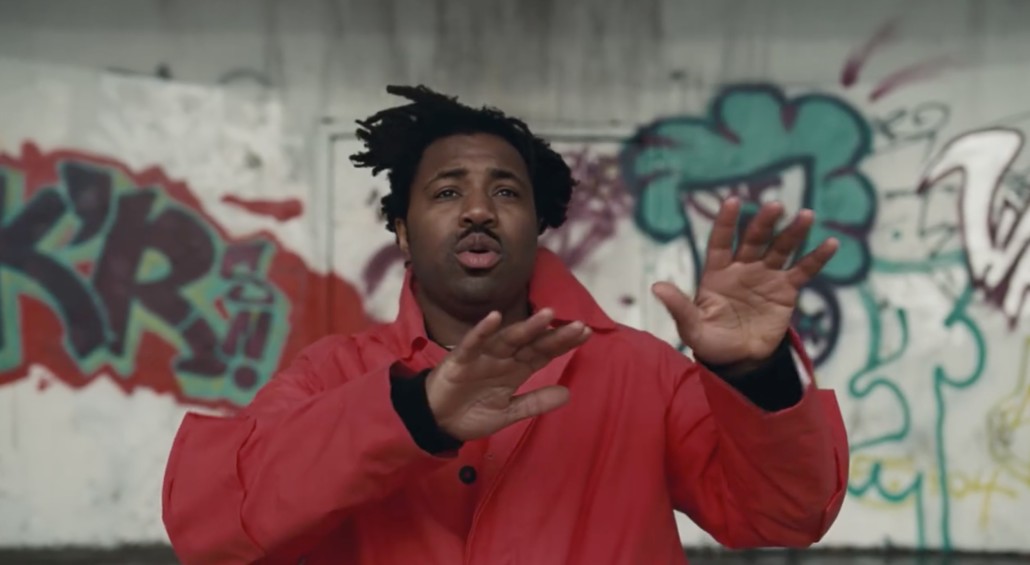We all know that black is brilliant (duh), but to experience that brilliance in live action multiple times a day, in front of hundreds during a four-day period, solidifies the statement in an incredible way.
This is not a dream, it’s real life.
It’s the BlackStar Film Festival, an immersive weekend of moving movies made for us, by us. FUBU to the fullest. The extravaganza goes down every summer in Philadelphia, Pennsylvania, and the sixth annual event was held this year on Thursday, August 3rd through Sunday, August 6th.

Founded by Maori Karmael Holmes, a Philly based curator, filmmaker and cultural worker, it wasn’t her intention to build an ongoing, black focused film festival. “I had been doing some independent programming and was planning to do what I was calling a ‘micro-festival.’ It was going to be one/one-and-a-half days, and I wanted to focus on the African Diaspora in Black August at the anniversary of Jamaica and Ghana’s independence. I started off with film in my programming, and suddenly, I realized how many films by black people had not screened in Philadelphia that had either come out in 2012 or 2011. All of a sudden I had a list of 40 films. And so, pretty quickly it became a festival.”
This year, BlackStar screened 12 feature films and more than four dozen shorts. There were big names like Gabourey Sidibe, Adepero Oduye, and the popular YouTube channel, Black & Sexy TV, showing their hot, new works, but also innovative motion pictures from fantastic, daring, newcomers, and even teenagers, that blew audiences away. Known or unknown, every filmmaker brought their A game, and the soul that black culture requires of our great artists.

Staring at a huge movie screen wasn’t the only thing going on at the melanin-filled festival. Dope parties took place during most nights, allowing a relaxed space for filmmakers to connect with their fans, each other, and also unwind from the plethora of images presented throughout the day.

The films, of course, were the main attraction, but a huge highlight was an on stage conversation between BlackStar founder, Holmes, and juggernaut director/writer, Ava DuVernay, who spoke about her life as a black filmmaker, her humble beginnings (she says the director commentaries on DVDs were her film school), past works, and upcoming projects. DuVernay kept it 100 percent real as she answered question after fascinating question.
DuVernay was delightfully open and honest about her unique path to becoming a filmmaker. One funny story she shared gave an insider's look at how she persuaded audiences to see her early film, I Will Follow.
“Me and Matt Cherry and Tilane Jones were out there hustling, trying to move people off the 3rd Street Promenade [in Santa Monica] into the theater. Bothering people [asking], ‘What are you here to see?’ ‘Uhhh, I’m here to see this.’ ‘Nah, you don’t wanna see that! You wanna see this.’ If AMC only knew! It was horrible! But that was the first film,” DuVernay reminisced.
The story prompted loud laughter from the thick audience, but also a sense of the immense amount of gutsiness the filmmaker possessed to get to the level she’s at today. I’m certain her words motivated many in the audience, especially residents of Philadelphia who definitely had to feel great pride after she dubbed the city a "film mecca", stating, "Philly really is kind of a black film mecca to a lot of us, because we know we can come here and get a beautiful, diverse, inclusive audience that’s passionate about stories."

DuVernay’s chat wasn’t the only discussion taking place at BlackStar. After each screening, the filmmakers would take questions from the audience in the Lightbox Film Center, and panels were held a block away at the Institute of Contemporary Art (ICA) on topics ranging from film distribution, to costume design.

I was most fascinated by the Curator’s Roundtable panel. It included four unique film curators (Dessane Cassell, Ashley Clark, Michelle Materre, and Jon-Sesrie Goff) who discussed holding the “keys” to showing films at their revered institutions (which included New York City’s BAM and the Smithsonian National Museum of African American History and Culture in D.C.), what they look for in films they chose to screen, and the importance of black films made by black filmmakers. What these tastemakers do day in and day out, is somewhat like high-level Netflix suggestions, but serving much doper work that you most likely can’t find with a click of a button. And as an added bonus, if you’re black, the stories they share at their respective venues just might connect to you on a deeper level than you may initially expect.
If that wasn’t enough, an exhibition entitled Lossless, was housed at Drexel University's Pearlstein Gallery. The “exploration of black and brown bodies as a site of compression” was organized by Holmes, herself, and prominently featured BlackStar alumni filmmakers. My favorite piece was Process, a music film collaboration between Kahlil Joseph and the musician, Sampha. The work featured many songs from Sampha’s debut album of the same name, laid on top of slick images that profiled the story of African immigration to Britain.

The BlackStar Film Festival is truly magic. At the end of its first outing six years ago, Holmes revealed to me that people were immediately asking about the next one, and I can’t blame them, because my excitement was now peaked as well. When I asked Holmes what we should look forward to at next year’s fest, she giggled, “I have no idea.” Further detailing, she said, “Every year I’m always like, I don’t know, because it is really a lot of work, physically and financially. This [year] is really great, so we’ll see!”
We definitely will “see”—more films providing amazing perspectives from high caliber artists creating work that speaks to us, as black people, in a “mecca” that knows how to showcase such magic so brightly.

For more info on the festival, check out BlackStarFest.org.
